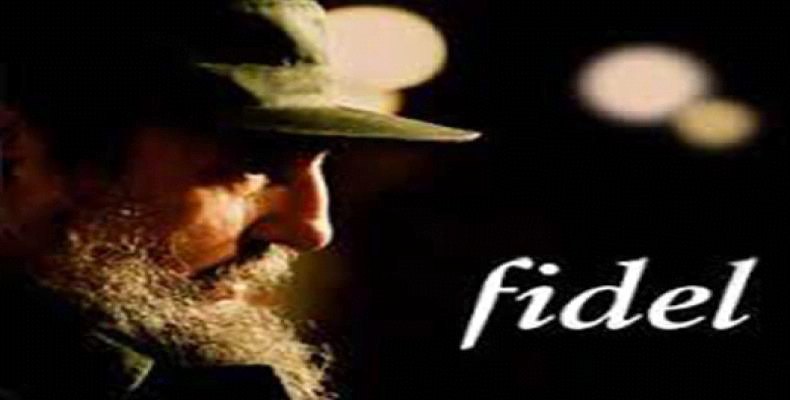
Men like Fidel Castro transcend their era and the borders of the country where they are born
By María Josefina Arce
Men like Fidel Castro transcend their era and the borders of the country where they are born. Never better expressed than in the words of the late Venezuelan president, Hugo Chavez, when he affirmed that "Fidel does not belong only to Cuba, he belongs to this world of ours, to this America of ours..."
The historic leader of the Cuban Revolution left a great legacy to all men and women who love peace and human dignity. He taught us not to give up, to pursue our dreams no matter how unattainable they may seem.
Fidel was a clear example of that tenacity. Like Cuba's National Hero, José Martí, whose ideology nourished his thoughts and actions, he always stood by the side of the most humble, for whom he fought on every platform.
He always envisioned that a better world for all is possible, with social justice, without inequalities. And he worked hard on that path. His voice was not only raised to defend the rights of all peoples, but he put this commitment to humanity into practice.
With the humanism and solidarity that permeated the Cuban revolution, he shared with citizens around the world Cuba's advances in important areas such as health, education and biotechnology.
Thanks to this altruism, many humble people were able to receive medical attention for the first time in remote parts of the world and young people from low-income families were trained in Cuban territory as health professionals.
In health matters, the peoples of Latin America have also benefited from another initiative of Fidel, conceived together with Chavez, the Miracle Mission, which has allowed countless Latin Americans to recover their sight. Cuba made its human and material resources available to these people.
Subsequently, and with Venezuelan help, ophthalmological centers, advised by Cuban personnel, began to be replicated throughout the region.
Likewise, with the solidary assistance of Cuba, a study of people with disabilities was carried out, which for example, in Ecuador was called "Manuela Espejo", in Nicaragua "Todos con voz" and in Bolivia "Moto Méndez".
This study made it possible in these and other countries to structure specialized care plans and provide material assistance to these people.
His contribution to guarantee a fundamental human right such as education was also meritorious. At Fidel's suggestion, Cuban pedagogues gave life to the literacy method "Yo sí puedo" ("Yes, I can"). which even reached more developed nations.
Fidel Castro was an exceptional man, of great altruism and sensitivity, who taught us to face any adversity, to get up and keep fighting. That is why for Cubans and citizens from all over the world, August 13th -- the day he was born in 1926 -- in the current province of Holguin, is a memorable date.

